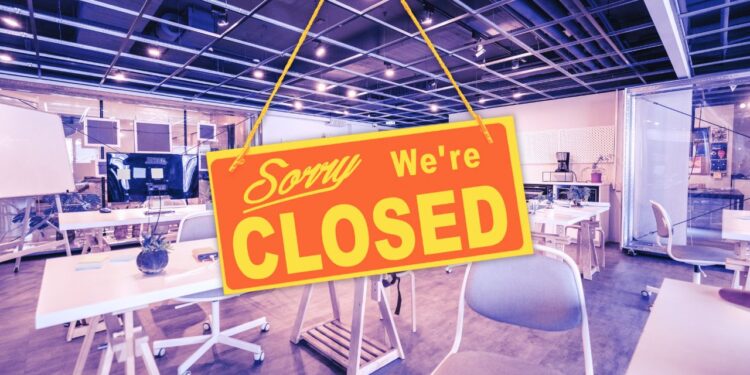- Although it’s often a hush-hush subject, coworking operators are being pushed out of their spaces due to rising rents, or because landlords refuse to renew their contracts.
- Shlomo Silber, CEO & Co-Founder at Bond Collective, spoke to us about how he tried to save his first coworking space from being closed down. Unfortunately, he was unsuccessful.
- “The landlord was not willing to budge at all. We gave them a proposal; they rejected our proposal. Once they rejected our proposal that’s when this legal battle really started,” Silber told Allwork.Space.
One of the most impactful topics that is perhaps less spoken about in the world of coworking is the issue of lease renewals. A space might be successful, but operators can still be forced to close if they have to vacate their location due to non-agreement with their landlords.
Space rents are increasing exponentially, but many operators haven’t recovered financially from the slowdown of the pandemic.
Shlomo Silber, CEO & Co-Founder at Bond Collective, spoke to us about how he tried to save his first coworking space from being closed down. Unfortunately, he was unsuccessful — through no fault of his own — and the company’s inaugural location is being shuttered.
“This was our first location, which was in the Flatiron District in New York on 23rd and Park. That was really the start of our brand,” Silber told Allwork.Space. “The Bond Collective really became something; it was in that location where things really got started where we saw that this coworking thing is really taking off.”
The Bond Collective opened its doors in 2015. When COVID hit, it had a severe impact on the entire industry.
“We were trying to work together with our landlord to kind of get through that situation. We sat down with our landlord probably about a year ago and tried to work out a deal with him,” Silber said. “We made an offer based on what we thought really made sense because we only had three years left on our lease. We had some rent bumps coming up in escalations and we really went to our landlords and started trying to talk to them about restructuring the lease to make it work so we would be able to be a successful location there.”
He says his landlord was not willing to budge at all and rejected proposed solutions.
“Once they rejected our proposal that’s when this legal battle really started,” he explained. “It’s a very unfortunate situation because what we’re seeing now is that some landlords are choosing to work together with their operators, and those are the ones that are actually being successful right now because they work together
Silber says there are some solutions to this issue, which include shared revenue structure, a reduction in the lease, or some form of deferred rent or dismiss rents.
“We were not able to figure anything out, which ultimately led to our eviction from the space,” Silber said.
He said he has tried to house some of the space’s members in the Bond Collective’s other locations, as well as calling competitors to see if they will house the Bond Collective’s displaced members.
In this case, and in others like it, landlords are left with a vacant location and the operators are left without a space. Members, meanwhile, have to scramble going to a new location or are having to disrupt their business.
“The lows are really when you realize that you’re dealing with certain groups that aren’t willing to compromise and — even if it potentially hurts themselves — they’re still in a situation where they’re not willing to bend, whether that’s because of their egos or whether they’re short-sighted on money rather than being able to work out something in the long run,” he concluded.
Looking to the future, he says Bond Collective will find a new location in the area that will be bigger and better than what they previously had.
“I feel that at some point, landlords will really wake up,” Silber told Allwork.Space. “The way of the world is changing, and flex space is a way of the future.”



 Dr. Gleb Tsipursky – The Office Whisperer
Dr. Gleb Tsipursky – The Office Whisperer Nirit Cohen – WorkFutures
Nirit Cohen – WorkFutures Angela Howard – Culture Expert
Angela Howard – Culture Expert Drew Jones – Design & Innovation
Drew Jones – Design & Innovation Jonathan Price – CRE & Flex Expert
Jonathan Price – CRE & Flex Expert











